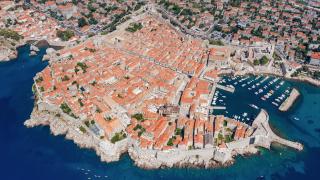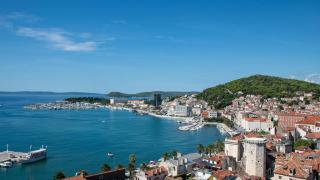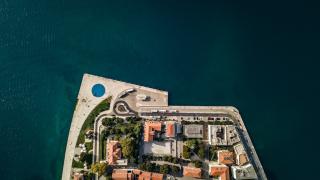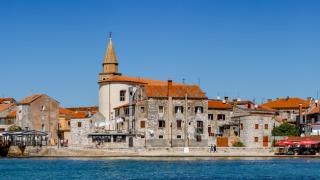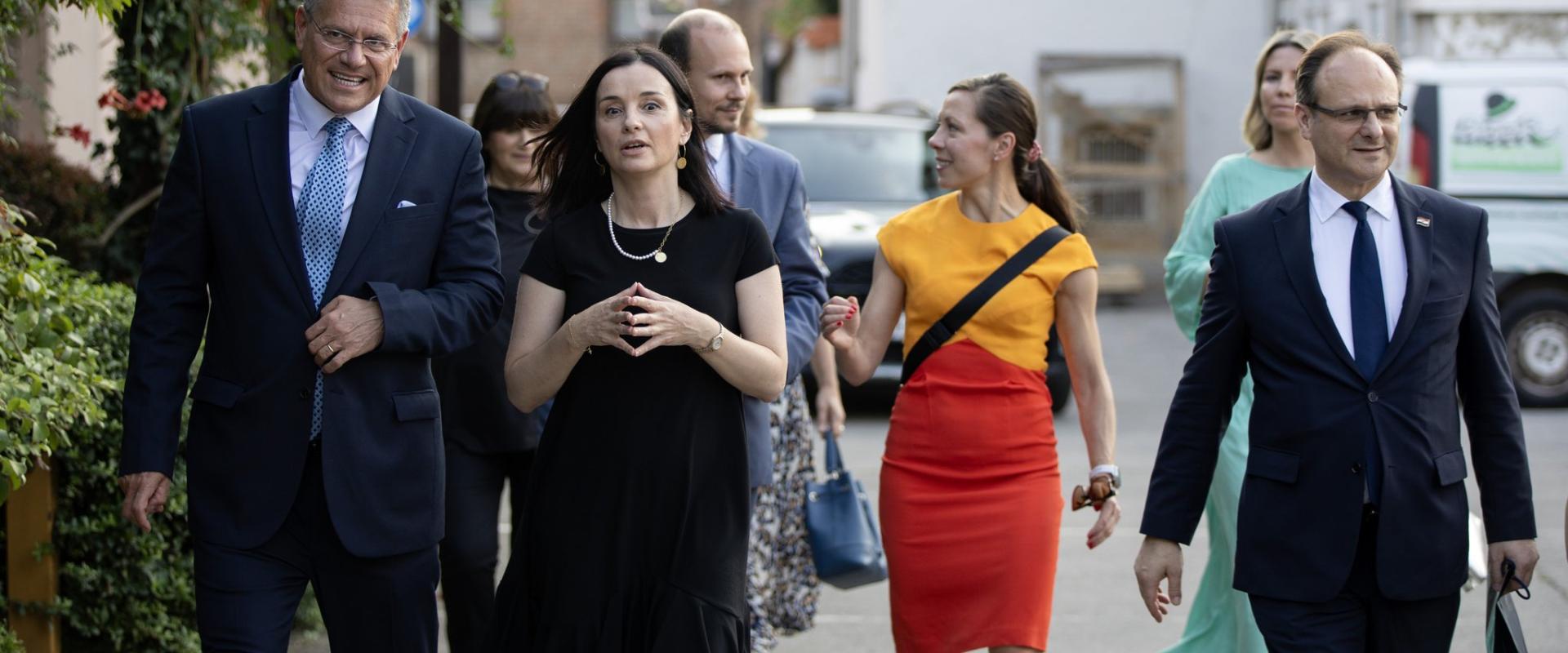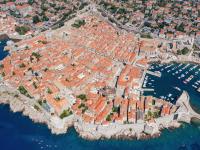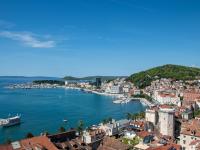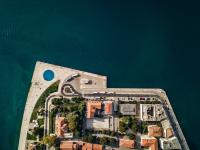Introduction
Croatia's higher education system offers international students a unique blend of academic excellence and European study experience. The country hosts over 130 higher education institutions, including 8 public universities and several private colleges.
Key benefits of studying in Croatia include:
- Affordable tuition fees ranging from €3,000 to €5,000 per year
- Programs available in both Croatian and English
- Growing number of international partnerships with EU universities
- Recognition of degrees across the European Higher Education Area
Croatian universities welcome approximately 2,000 international students annually, with numbers steadily increasing. Major academic centers include:
- University of Zagreb - Croatia's largest and oldest university
- University of Split - Known for maritime studies and medicine
- University of Rijeka - Strong in engineering and technical sciences
- University of Osijek - Specializing in agriculture and biotechnology
Most undergraduate programs last 3-4 years, while master's programs typically require 1-2 years of study.
Academic System
Croatia's higher education follows the Bologna Process with a three-cycle degree structure:
Types of Institutions:
- Public Universities (8 institutions)
- Private Universities (2 institutions)
- Polytechnics (11 institutions)
- Colleges (30 institutions)
Degree Programs:
- Bachelor's Degree (3-4 years)
- Master's Degree (1-2 years)
- Doctoral Studies (3 years)
Academic Calendar:
- Fall semester: October to February
- Spring semester: March to July
- Examination periods follow each semester
Language of Instruction:
- Most undergraduate programs are taught in Croatian
- Over 600 courses offered in English
- International programs typically taught in English
- Language preparation courses available for international students
Credit System:
- ECTS (European Credit Transfer System)
- 60 ECTS credits per academic year
- 30 ECTS credits per semester
Grading Scale:
- 5 (Excellent): 90-100%
- 4 (Very Good): 80-89%
- 3 (Good): 70-79%
- 2 (Sufficient): 60-69%
- 1 (Fail): Below 60%
Most programs require attendance at lectures and practical work. Assessment includes written exams, oral presentations, and project work.
Admission Requirements
International students must meet specific requirements to study at Croatian universities:
Academic Prerequisites:
- Completed secondary education (high school diploma)
- Certified translations of academic transcripts
- Grade point average requirements vary by institution and program
- SAT/ACT scores may be required for some programs
Language Requirements:
- Programs in Croatian: B2 level proficiency required
- English-taught programs: IELTS (6.0+) or TOEFL (80+ IBT)
- Language certificates must be less than 2 years old
Required Documentation:
- Completed application form
- Passport (valid for entire study period)
- Birth certificate
- Medical certificate
- Proof of financial means
- Two passport-sized photographs
- Application fee (€50-100)
Application Process:
- Submit documents to chosen institution
- Await acceptance letter
- Apply for student visa at Croatian embassy
- Register residence upon arrival
Important Deadlines:
- Winter semester applications: March 1 - July 1
- Summer semester applications: September 1 - December 1
- Early applications recommended for visa processing time
Contact individual institutions for specific program requirements and deadlines.
Student Life
Student life in Croatia offers affordable living with comprehensive support services. Most universities provide dedicated student dormitories (studentski dom) ranging from €100-200 monthly. Private room rentals in city centers average €250-350 per month.
Cost of Living Breakdown:
- Monthly public transport pass: €30-40
- Student meal at university cafeteria: €3-5
- Monthly groceries: €200-250
- Internet and utilities: €80-100
Students receive the X-ica student card, providing discounts on:
- Public transportation
- Cultural events and museums
- University cafeterias
- Sports facilities
Healthcare Access: International students must obtain Croatian health insurance (HZZO), costing approximately €70 per year. University health centers provide basic medical care.
Transportation Options:
- Extensive public bus networks in major cities
- Tram systems in Zagreb and Osijek
- Student bicycle rental programs
- Intercity trains with student discounts
University student services offer:
- Academic counseling
- Career development support
- Language learning assistance
- Cultural integration programs
Financial Considerations
Studying in Croatia offers relatively affordable education compared to other EU countries. Public university tuition fees range from €800-3,000 per academic year for international students. Private institutions typically charge €3,000-7,000 annually.
Monthly Living Expenses:
- Student accommodation: €100-200 (dormitories), €200-400 (private rentals)
- Food and groceries: €200-300
- Public transportation: €15-30
- Books and study materials: €30-50
- Health insurance: €30-50
Scholarship Opportunities:
- Croatian Government Scholarships for Foreign Students
- Erasmus+ funding for EU students
- Bilateral country agreements with specific scholarship programs
- Individual university merit scholarships
Part-time Work Regulations:
- Non-EU students can work up to 20 hours per week during studies
- Full-time work permitted during summer breaks
- Work permit required through student service centers
Banking Requirements:
- Student bank account opening requires residence permit
- Most banks offer free student accounts
- International transfers typically cost €10-30
- Major credit cards widely accepted
Practical Tips
Before Departure:
- Apply for student visa at least 3 months before semester starts
- Arrange health insurance coverage (mandatory for enrollment)
- Book temporary accommodation for first 2 weeks
- Register with your embassy in Croatia
Academic Success:
- Attend Croatian language courses offered free by most universities
- Join university study groups for peer support
- Visit professor office hours (typically 2 hours weekly)
- Use university libraries (open 8 AM - 8 PM weekdays)
Cultural Integration:
- Join ESN (Erasmus Student Network) for orientation support
- Participate in student mentorship programs
- Connect with Croatian Student Association events
- Use university sports facilities (€20-30 monthly membership)
Essential Resources:
- University International Office contact
- Student Services Center (studentski centar)
- Academic Affairs Office
- Student Counseling Service
Online Platforms:
- ISVU system for course registration
- Studomat for exam scheduling
- University e-learning platform
- Student ID card (X-ica) for discounts
Conclusion
Studying in Croatia offers a compelling combination of quality education and affordable living costs. International students gain access to over 130 accredited institutions with programs in English and Croatian. The average total monthly expenses, including accommodation and living costs, range between €500-800.
Key Benefits:
- EU-recognized degrees through Bologna Process system
- Lower tuition fees compared to Western European countries
- Rich cultural experience in a growing academic hub
- Strong support systems for international students
Next Steps for Prospective Students:
- Contact chosen university's international office
- Begin visa application process 3-4 months before term starts
- Join online student communities for practical advice
- Review scholarship opportunities through ENIC/NARIC
For additional guidance, consult the Study in Croatia portal (www.studyincroatia.hr) or contact Croatian embassy education departments.
